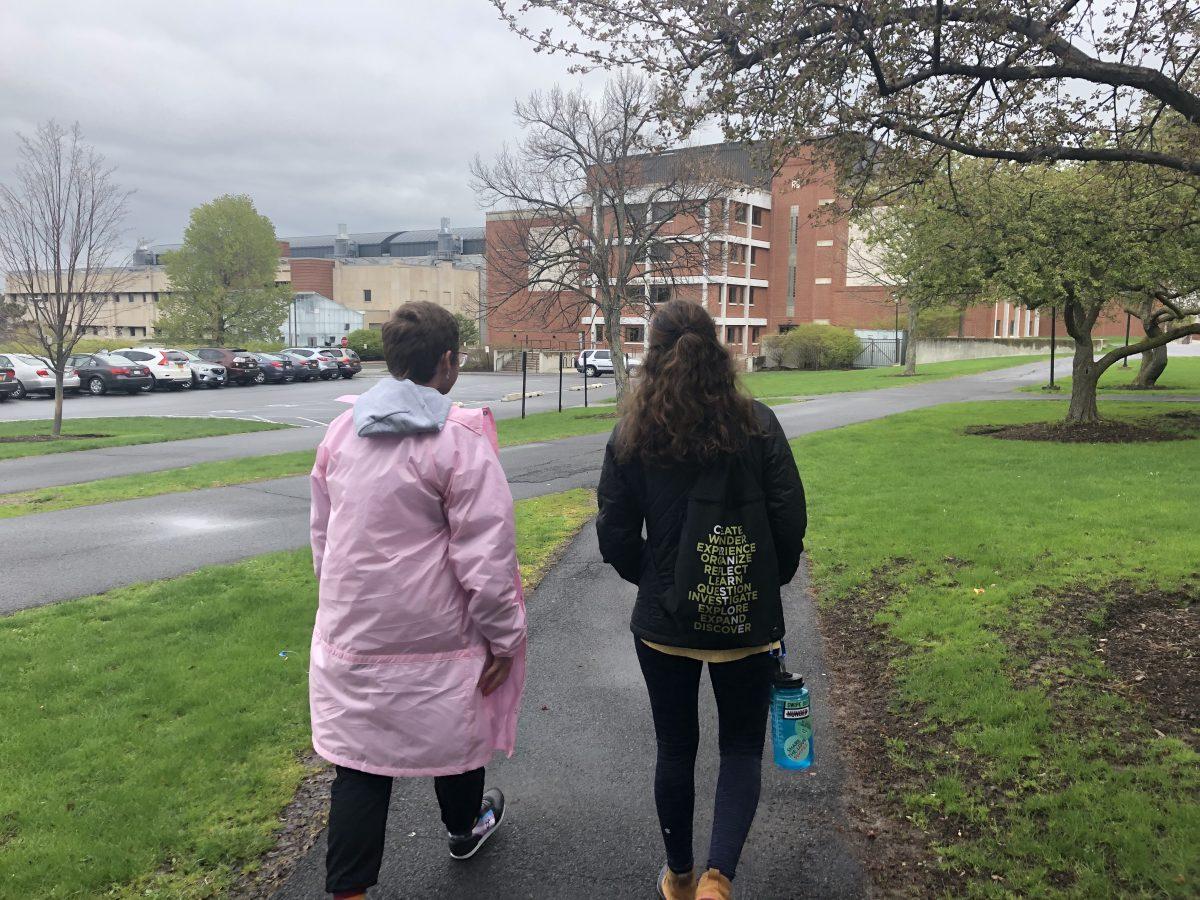The first official LGBTQ Walking Tour took place on April 28, highlighting LGBTQ history in Ithaca. The tour, a project the Center for LGBT Education, Outreach and Services at Ithaca College created using the PocketSights app, has 32 stops and covers over 7 miles of ground. People can also take the tour virtually through the app without even being in Ithaca.
The tour was developed by Rachel Steinmetz, an IC senior and LGBT Center intern; Cal Goodin, an IC senior and student employee at the LGBT Center; Rachel Kreidberg, an IC junior and audio engineer; and Luca Maurer, director of the LGBT Center.
Steinmetz took on the project during Fall 2018, starting with a list of 10 people to talk to about local LGBTQ history.
“Every week I would meet up with different people and I would talk to them about what it was like growing up in the friendly gay, queer area of Ithaca. And people would tell me crazy, different stories about what happened or where they would hangout,” Steinmetz said.

While Steinmetz and Maurer tackled the research, Goodin worked on the technical part of the project, integrating the information with PocketSights and editing the final scripts.
Maurer said the team started the project wondering if they would be able to gather enough history for a tour. The opposite happened — they ended up with so much information and so many stories that they couldn’t even include all of it in the tour.
“Ithaca and the area is a place that holds a ton of LGBTQ history but it really hasn’t been recorded in one place,” said Maurer.
The tour began at the Ithaca College main flagpole, located near the Textor Ball. In April 2001, an LGBTQ pride flag was raised. The flag was stolen a few days later and was replaced by the LGBTQ campus organization at the time. For the next five years during the month of April, the pride flag continued to be flown and stolen. LGBTQ students decided to keep vigil, both day and night, under the flag. Maurer would visit the students during the night, bringing hot chocolate.
Two of Maurer’s favorite stops on the tour are the Ithaca Statement on Bisexuality, which was one of the first recorded meetings on bisexuality in history, and Morrie’s Bar in Collegetown.
“There’s a historian who believes that’s [Morrie’s Bar] the first sit-in in America around LGBTQ issues that was organized by students,” said Maurer.

Tour participants were also taken to the former location of Firebrand Books, an independent publisher of feminist and lesbian literature which was founded in 1984 by Nancy Berano. Berano centered her work as an editor and a publisher around marginalized authors.
Another interesting piece of LGBTQ history in Ithaca? Some of Kurt Cobain’s ashes are at the former site of the Namgyal Monastery in Ithaca after his wife, the singer and actress Courtney Love, brought them to the Tibetan monks for a consecration ceremony. Cobain, best known as the guitarist of the rock band Nirvana, was considered an ally to the LGBTQ community because of his work to eliminate homophobia and support LGBTQ rights.
The final stop on the tour was the former location of the Common Ground Dance Club. Goodin spoke about the legacy of the space and explained that it was a place that brought together people from all walks of life. Goodin was surprised by how many “firsts” took place in Ithaca and how vast the area’s LGBTQ history is.
“It’s connected to the colleges, but also has a space that goes way beyond the colleges to the local Ithaca community. There’s a lot to learn and a lot to be thankful for in this town that I really had no idea about.”







